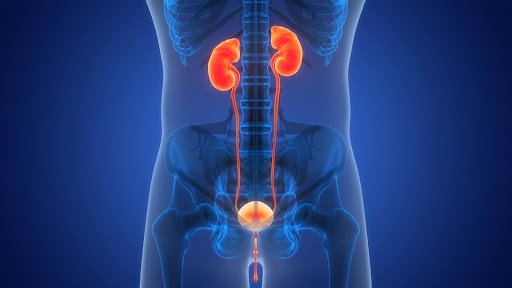Urology & Kidney Transplant
Here is a comprehensive overview of Urology & Kidney Transplant, covering the specialties, their connection, and key information.
Overview: Two Intertwined Specialties
Urology is the surgical specialty focused on the medical and surgical diseases of the male and female urinary tract (kidneys, ureters, bladder, urethra) and the male reproductive organs.
Kidney Transplant is a highly specialized surgical procedure within the broader fields of Transplant Surgery and Nephrology. It is the treatment of choice for most patients with end-stage kidney disease (ESKD).
While they are distinct specialties, they are deeply interconnected. Many urologists receive training in kidney transplantation, and transplant surgeons often have a background in general surgery with specialized fellowship training in transplantation.

Urology Treatment
Urology is a broad field dealing with a wide range of conditions.
Common Conditions Treated:
Kidney Stones: Medical
management, lithotripsy (breaking stones with sound waves), and surgical removal (ureteroscopy, percutaneous nephrolithotomy).- Cancers: Prostate cancer, kidney cancer, bladder cancer, testicular cancer, and penile cancer.
- Benign Prostatic Hyperplasia (BPH): Enlarged prostate causing urinary difficulties. Treated with medication or surgery (e.g., TURP, laser procedures).
- Urinary Incontinence: Loss of bladder control.
- UTIs (Urinary Tract Infections): Recurrent or complex infections.
- Male Infertility and Erectile Dysfunction (ED): Diagnosis and treatment.
- Pediatric Urology: Birth defects like hypospadias, undescended testicles, and congenital obstructions.
Key Urological Procedures:
- Cystoscopy: Visual examination of the bladder and urethra.
- Ureteroscopy: Scope to examine and treat stones in the ureters/kidneys.
- Prostatectomy: Surgical removal of the prostate (for cancer or severe BPH).
- Nephrectomy: Surgical removal of a kidney (for cancer or as a donor operation for transplant).
- Various reconstructive surgeries for the urinary tract.
Kidney Transplant
This is the process of placing a healthy kidney from a donor into a patient whose kidneys no longer function.
Indication for Transplant:
- End-Stage Kidney Disease (ESKD): When kidney function is less than 15% (Stage 5 CKD), requiring dialysis or transplant.
Types of Donors:
- Living Donor: A person donates one of their two healthy kidneys.
- Advantages: Better long-term outcomes, planned surgery, shorter wait time, longer organ survival.
- Donors undergo rigorous physical and psychological evaluation to ensure they are healthy and willing.
- Deceased Donor: A kidney is donated from someone who has been declared brain dead.
- Recipients are placed on a national waiting list (in the US, managed by UNOS). Wait times can be years.
The Transplant Process:
- Evaluation:The potential recipient undergoes extensive testing (heart, lung, blood tests, tissue typing) to ensure they are a good candidate.
- Waiting List:For deceased donor transplants, the patient is listed. The match is based on blood type, tissue type, antibody level, time on waitlist, and geographic location.
- The Surgery:The failed kidneys are usually left in place. The new kidney is placed in the lower abdomen (iliac fossa) and connected to the recipient’s blood vessels (artery and vein) and bladder.
- Immunosuppression:To prevent rejection, recipients must take immunosuppressant drugs for life. This is a critical balance—too much suppression leads to infections, too little leads to rejection.
- Lifelong Follow-up:Constant monitoring of kidney function, drug levels, and for signs of rejection or complications.
The Urologist’s Role in Transplant:
- Living Donor Nephrectomy: Many urologists are specially trained to perform the minimally invasive surgery (often laparoscopic or robotic) to remove the kidney from the living donor.
- Managing Post-Transplant Urological Issues: Addressing urinary leaks, obstructions, bladder dysfunction, or infections that may arise after the transplant.
- Managing native kidney issues like stones or cancers in transplant patients.
The Crucial Connection: Urology and Transplant
The relationship is symbiotic:
- The Urologist as a Gatekeeper:A urologist is often the first to diagnose chronic kidney disease (e.g., from obstruction due to stones or BPH, or from kidney cancer) and refers the patient to a nephrologist. When dialysis becomes imminent, the urologist may be part of the conversation about transplant eligibility.
- The Transplant Surgeon:While often a separate specialty, the skills overlap significantly with urology, particularly in vascular and bladder surgery.
- Post-Transplant Care:Urological complications, though rare, are serious. Urologists are essential partners in managing these issues to protect the precious transplanted organ.
Key Considerations and Challenges
- Organ Shortage: The biggest challenge. There are far more people on the waiting list than available organs.
- Immunosuppression: Lifelong drugs have side effects (increased risk of infections, diabetes, cancer, heart disease).
- Rejection: The body’s immune system can attack the new kidney. Acute rejection can often be treated; chronic rejection is a leading cause of long-term transplant failure.
- Recurrence of Original Disease: Some diseases that killed the native kidneys can recur in the transplant.
The cost of Urology treatments and Kidney Transplant in India is a primary reason for its popularity as a medical tourism destination, offering high-quality care at a fraction of the cost in Western countries.
Here’s a detailed breakdown of the costs involved.
Summary: Estimated Cost Range
- Kidney Transplant (Entire Process): ₹5,00,000 to ₹15,00,000 (approx. $6,000 to $18,000 USD)
- Common Urology Procedures: ₹1,00,000 to ₹4,50,000 (approx. $1,200 to $5,400 USD)
Detailed Cost Breakdown for Kidney Transplant
The total cost isn’t just for the surgery; it includes pre-operative, surgical, and post-operative expenses.
- Pre-Transplant Evaluation (For Recipient & Donor):
- This includes a series of tests like blood tests, tissue typing (HLA), cross-match, ECG, Echocardiogram, chest X-ray, ultrasounds, and specialist consultations.
- Cost: ₹80,000 – ₹1,50,000 for both donor and recipient.
- The Surgery Itself:
- This is the largest cost component, covering the hospital stay (ICU and room), surgeon fees, anaesthetist fees, operating theatre charges, and nursing care.
- Cost: ₹3,00,000 – ₹8,00,000
- Cost of the Organ:
- Legal Note: In India, buying or selling human organs is illegal and punishable by law. The organ must come from a deceased donor list or a genetically or emotionally related living donor (e.g., spouse). The cost mentioned here is for the administrative and regulatory paperwork, not the organ itself.
- Cost: ₹50,000 – ₹1,00,000 (for documentation, government registration fees)
- Immunosuppressant Medications (Post-Transplant):
- This is a critical, lifelong cost. Patients need to take anti-rejection drugs daily. The first 3-6 months require higher doses and more expensive drugs, with costs tapering off later.
- Cost for first 3 months: ₹15,000 – ₹30,000 per month
- Cost after 3 months (lifelong): ₹8,000 – ₹15,000 per month
- Follow-up Tests and Consultations:
- Regular blood tests to monitor kidney function and drug levels are essential.
- Cost (first year): ₹5,000 – ₹10,000 per month (frequency decreases over time)
Cost Comparison: Living Donor vs. Deceased Donor Transplant
- Living Donor Transplant: Generally, more predictable in cost and falls within the range mentioned above. The surgery can be planned.
- Deceased Donor (Cadaver) Transplant: The cost might be slightly higher due to the unpredictable nature of the organ availability and the potential need for more urgent and complex logistics. The wait time can be several years.
Cost of Common Urology Procedures in India
Procedure | Description | Estimated Cost Range (₹) | Estimated Cost Range (USD) |
Kidney Stone Treatment | |||
Lithotripsy (ESWL) | Non-invasive sound wave therapy | 30,000 – 60,000 | $360 – $720 |
Ureteroscopy (URS) | Using a scope to remove stones | 1,00,000 – 2,50,000 | $1,200 – $3,000 |
PCNL | Keyhole surgery for large stones | 1,50,000 – 3,00,000 | $1,800 – $3,600 |
Cancer Surgery | |||
Radical Nephrectomy | Kidney removal for cancer | 2,00,000 – 4,00,000 | $2,400 – $4,800 |
Radical Prostatectomy | Prostate removal (Robotic) | 3,00,000 – 4,50,000 | $3,600 – $5,400 |
TURBT | Bladder tumor removal | 1,00,000 – 2,00,000 | $1,200 – $2,400 |
Other Procedures | |||
TURP | Surgery for enlarged prostate | 1,00,000 – 2,50,000 | $1,200 – $3,000 |
Simple Nephrectomy | Kidney removal (non-cancer) | 1,50,000 – 3,00,000 | $1,800 – $3,600 |
Factors That Significantly Influence the Cost
- Type of Hospital:Corporate chain hospitals (e.g., Apollo, Fortis, Max, Medanta) in metro cities (Delhi, Mumbai, Bangalore, Chennai) are at the premium end. Trust-run or government hospitals are significantly cheaper but have long wait times.
- Surgeon’s Experience:Renowned transplant surgeons and senior urologists charge higher fees.
- City:Costs in metros are higher than in tier-2 cities.
- Technology Used:Robotic-assisted surgery (e.g., Da Vinci Robot) adds a significant premium (₹1-2 lakhs extra) to the procedure but offers benefits like precision and faster recovery.
- Patient’s Health:Any complications (infection, rejection) or co-existing conditions (heart disease, diabetes) will increase the overall cost due to longer ICU stays and more complex management.
- Duration of Hospital Stay:A smooth recovery with a shorter stay reduces costs.
Why is India a Cost-Effective Destination?
- Lower Operational Costs: Overall lower infrastructure and staffing costs compared to the West.
- Competitive Pricing: A high number of skilled doctors and hospitals creates a competitive market.
- Government Initiatives: Schemes like the Ayushman Bharat PM-JAY provide coverage for these procedures for eligible Indian citizens, though it’s not available for medical tourists.
Important Advice for Patients
- Get a Detailed Package Quote: Always ask the hospital for a detailed, written breakdown of what is included in the “package” (e.g., does it include medicines, follow-up tests?).
- Factor in Hidden Costs: Account for accommodation for the donor/recipient family, local travel, and food.
- Focus on Quality, Not Just Cost: Choose a JCI or NABH accredited hospital with a experienced team of transplant surgeons, nephrologists, and urologists. The success rate and post-operative care are as important as the cost.
- Legal Compliance: Ensure the hospital strictly follows the Transplantation of Human Organs Act (THOA) to avoid any illegal practices.
Conclusion
Urology provides the broad foundational care for the entire urinary system, while Kidney Transplant represents a pinnacle of specialized, life-saving intervention for its failure. Together, these fields work in concert to manage kidney disease from its earliest stages to its most advanced, offering patients a chance at a longer, higher-quality life free from dialysis.


